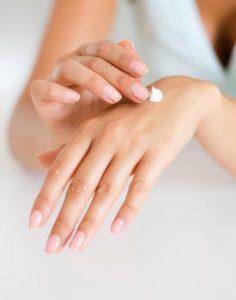No one enjoys having chronic inflammation throughout the day, especially when it causes great discomfort. While inflammation is a completely natural process in the body which will help with injury, there’s no need to suffer when you can’t handle the discomfort of your symptoms.
Chronic inflammation, the bad kind of inflammation, happens when the natural process doesn’t get turned off by your body when it normally should. As a result, if it continues for years, your body can go down a bad road of disease. Inflammation is linked to causing cancer, as ample research show the inflammation is present well before tumors begin to develop and transform. With that in mind, we don’t want any inflammation lurking around in our body. Let’s look at the top ten ways to get rid of it so you can rest assured you’re as strong, healthy, and energetic as possible!
Ways To Overcome Chronic Inflammation
- Avoid overly processed foods. This means cutting out as much sugar, white flour, and high fructose corn syrup as possible in order to reap anti-inflammatory benefits. When we eat foods that are laced with harmful ingredients throughout their manufacturing process, our body can easily respond with inflammation and work against our internal system. Once you start making an effort to remove these foods from your everyday diet, you’ll not only feel more energetic but your skin will likely break out less too. However, don’t totally deprive yourself if you’re craving a bowl of ice cream or a few cookies. Treat them as a reward for your hard work and commitment to healthy eating throughout the week. As long as you aren’t going overboard, you still are making steps in the right direction!
- Lower your levels of nutritional stress. You can easily create high levels and chronic inflammation from nutritional stress if you eat foods that are not properly prepared. For example, if you don’t soak nuts before eating them or boil cruciferous vegetables thoroughly, anti-nutrients can make your digestion do a lot of extra work. I highly suggest that you look into planning a sauté, bake, or steaming session for your vegetables so that they do not cause any distress.
- Take out foods you’re allergic to. Eating foods that you have a history of issues with can cause inflammation, even if they’re considered “healthy”. Start paying very close attention to what you eat and how your body reacts to it. If you find yourself feeling dizzy or irritable after eating something in particular, take some notes and remember to not include it in your next dish.
- Drink enough water. This sounds so cliche but our bodies are constantly craving water to run the best it can. We are made up of 60% water, and most people still aren’t drinking enough water or drinking the best quality of water! Stop taking in sugar loaded lattes or fruit juice that won’t do anything beneficial for your body. Without enough water, your detox systems won’t be able to clear out the built up toxins circulating in your body as well.
- Are you constantly including lots of animal protein in your diet? Make sure you watch what sources you consume as eating too much protein can cause an inflammatory response in your body. If you are into fitness and are used to drinking whey protein shakes every day, think about exploring vegan options that are a little easier on the stomach.
- Get in enough fatty acids. Omega-3 and Omega-6 are noted as essential acids that our body desperately needs. However, Omega-6 fatty acids are the kind that can heavily increase chronic inflammation in our bodies, while Omega-3 fatty acids do the opposite to lower it. Unfortunately, we don’t realize that Omega-6 is found in seeds and nuts and the oils made from them. This is why we have to do our bust to cut out the packaged and heavily processed foods that incorporate those oils. The best kinds of fish to get enough Omega-3 fatty acids are salmon, cod, and tuna. Eat them straight from the grill or bake them with fresh veggies for a healthy and inflammation fighting meal!
- Get enough sleep. This is a no brainer that will you help you in almost every aspect of your life. If you aren’t getting enough rest each night, your mind and body will deteriorate because it can’t do its job. Just remember the last time you went to work or sat in class totally sleep deprived. How did you feel? Most likely you felt like your body was working against you. If you continually have nights where you aren’t prioritizing sleep enough, you’ll find yourself feeling weak and getting sick more often. Those signs are definitely not ones you want to experience if you already are struggling with chronic inflammation! Turn off notifications when it gets closer to your bedtime and create a night time routine so your mind is prepared to relax. This will do wonders for your mental health and you’ll find that falling asleep will be much easier!
Conquering Chronic Inflammation
Chronic inflammation can feel like a mountain to overcome if you’ve been taking medication, are trying every piece of advice online, and are praying for the best. Luckily, you don’t need to fret because you can easily talk to an expert who can give you advice based on your personal health history. Lots of the information posted on health sites is for general audiences, so what worked for the author might not be the same method that will best fit your needs. If you feel that you need more help with dealing with your inflammation, seek the opinion of a professional functional medicine doctor as soon as possible! You’ll learn more about yourself and how to cope along the way!













